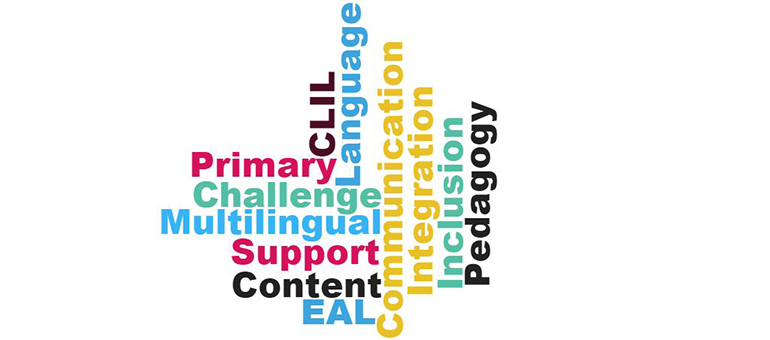
Defining the knowledge base of CLIL teaching in multilingual primary education settings
Funded by British Council ELT Research Awards 2018
September 2018 - November 2019
Overview
The number of primary schools in Europe adopting a content-and-language-integrated learning (CLIL) approach to the teaching of additional languages has risen sharply in recent years. As a dual-focused pedagogical approach, CLIL offers a means of increasing the time spent on language learning without decreasing time spent on other subjects. However, it also places new demands on primary school teachers associated with the integration of content and language teaching. At the same time, the cultural and linguistic diversity of pupils in primary education has increased significantly. This poses further challenges for primary teachers relating to the incorporation of more multilingual approaches to support the inclusion and integration of minority learners. This project brings together the expertise and teacher practical knowledge from the English as an Additional Language (EAL) context in the UK with that from the early-English teaching context in the Netherlands, to define the knowledge base of CLIL teaching in multilingual primary education. We are exploring teachers’ practical knowledge as a vital source of information within our understanding of what makes primary CLIL successful, adopting a methodology that simultaneously captures teachers’ local and contextual knowledges and practices, and enables the joint theorisation of these knowledges and practices in relation to each other and to existing CLIL principles. We will propose a framework of teacher knowledge for effective CLIL teaching in multilingual primary education settings, and in doing so, make a significant contribution towards unravelling the nature of the integrated approach as an effective and inclusive educational model for the primary years.
Objectives and outcomes
The project aims to contribute, first and foremost, to the professional and practice development of English language practitioners implementing content-based programmes in linguistically diverse settings. Scientifically, the project will make an important contribution to current debates on ‘integration’ within CLIL, as concerning both the conceptualisation of the unique content-language relationship and its potential for content and additional language learning, and the opportunities that CLIL instruction may provide for the inclusion and integration of minority learners. Importantly, it will do so at the primary level, where the nature and features of an effective and inclusive language-developing content pedagogy are only partially understood. Specifically, we aim to:
- Identify similarities and differences in teachers’ practical knowledge of English language teaching in content lessons in the UK and the Netherlands.
- Theorise these knowledges in relation to each other and existing CLIL teaching and learning principles.
- Develop a framework (incl. a self-assessment tool) of teacher professional knowledge for CLIL in multilingual primary education settings.
Programme
The study focuses on Upper Key Stage 2 (ages 9-11) as an important phase for both academic and language development, as learners deepen their critical thinking and academic language in preparation for their transition to secondary education.
The study comprises three phases, with Phase 1 (Sep 2018-Jan 2019) focusing on the explicating and systematising UK primary school teachers’ practical knowledge of teaching in linguistically diverse classrooms. Phase 2 (Feb-Jul 2019) is dedicated to identifying Dutch primary school teachers’ practical knowledge of early CLIL-with-English teaching and to placing this knowledge in dialogue with the primary EAL knowledge established in Phase 1. Phase 3 (Aug-Nov 2019) is then aimed at the sharing, dissemination and discussion of the study’s findings and resulting framework with teachers and teacher educators both within and across the two settings.
By focusing on the activity of teaching itself and by placing this in dialogue with applied-scientific expertise, we wish to advance an integrated endeavour across teachers, teacher educators and pedagogy researchers in order to obtain new scientific insights into, and concrete practical knowledge for effective CLIL teaching across a range of multilingual primary education settings.
Principle Investigator
Dr Dieuwerke (Dee) Rutgers, Faculty of Education.
Co-investigators
Dr Linda Fisher, Faculty of Education.
Prof. Rick de Graaff, Utrecht University of Applied Sciences.
With vital support from:
EarlyBird, Rotterdam
